-
About
- About Listly
- Community & Support
- Howto
- Chrome Extension
- Bookmarklet
- WordPress Plugin
- Listly Premium
- Privacy
- Terms
- DMCA Copyright
- © 2010-2024 Boomy Labs
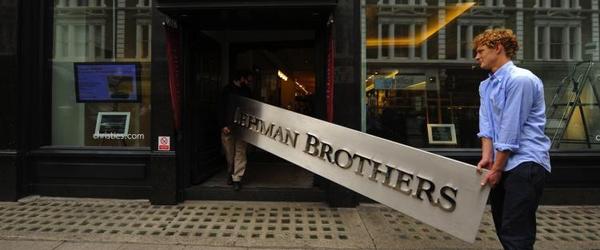

 Globalisation Café
Globalisation Café
Listly by Globalisation Café
Various resources for I/GPE

G8 Information Centre provided by the G8 Research Group What's New in the G8 Angela Merkel announces location for 2015 German-hosted G8 summit, January 23, 2014 Vladimir Putin's address on Russia assuming the G8 presidency, January 1, 2014 Russia assumes the 2014 G8 presidency G8 Dementia Summit, London, December 11,

IMF Home page with links to News, About the IMF, Fund Rates, IMF Publications, What's New, Standards and Codes, Country Information and featured topics

Center for International Private Enterprise 1155 15th Street NW, Suite 700 Washington, DC 20005 Tel: 202-721-9200 Fax: 202-721-9250

The Universal Credit can still work, says Daniel Pryor. If short-term problems are overcome it could be a simpler welfare system that does not pervert the incentives of the poor.
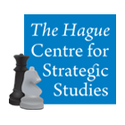
Conflict Prevention starts with Anticipation Intrastate conflict comes in different forms: from revolutions and wide-scale societal conflict, to full-blown civil war and genocide. The humanitarian, economic, social and political consequences of such conflicts can be severe. The implosion of Syria and Libya, and the ongoing turbulence in Somalia and Mali have thrown the spotlight back onto the devastating potential of civil war.

Presented by Hugh Pym Economic Correspondent Presented by Hugh Pym Economic Correspondent Before World War One, Britain was the world's economic superpower. With rapid growth and a vast empire, the country enjoyed significant levels of wealth and resources. However it wasn't ready for the economic impact war would have.
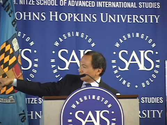
Francis Fukuyama, director of the International Development Program, discussed this topic as part of his lecture series entitled, "Getting to Denmark: Where the State, Rule of Law and Accountable Government Come From."

How does a simple T-shirt get made? To find out, we decided to make one -- and track every step of production. At the heart of the process are people like Jasmine, a garment worker in Bangladesh who worked on our shirts. Get the full story at planetmoney.com/shirt.

How does a simple T-shirt get made? To find out, we decided to make one -- and track every step of production. The journey took us around the world. The trip would have been impossible without the humble container, the unsung hero of the global economy. Get the full story at planetmoney.com/shirt.

How does a simple T-shirt get made? To find out, we decided to make one -- and track every step of production. The journey starts and ends with people like you, who bought the shirt. In between, we learned, is an entire world. Get the full story at planetmoney.com/shirt.

How does a simple T-shirt get made? To find out, we decided to make one -- and track every step of production. It all started in Mississippi. Or, if you go back far enough, in a seed lab. The full story is at planetmoney.com/shirt.

How does a simple T-shirt get made? To find out, we decided to make one -- and track every step of production. Turns out, there's nothing ordinary about a simple shirt. Get the full story at planetmoney.com/shirt.

It was just over two centuries ago that the global population was 1 billion - in 1804. But better medicine and improved agriculture resulted in higher life expectancy for children, dramatically increasing the world population, especially in the West.

The Think Tanks and Civil Society Program (TTCSP)runs a small, highly selective internship program for students (grad and undergrad) and recent graduates interested in gaining first-hand experience in public policy research in domestic and international affairs.
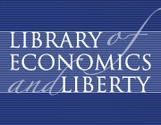
Economics for thought. Library of economics books and articles, encyclopedia, blog, podcasts, and educational resources. Topics include markets, microeconomics, macroeconomics, free trade, economic history, biographies, and political economy. EconLog, with Bryan Caplan and David Henderson, and EconTalk, with Russell Roberts. Adam Smith, David Ricardo, Bastiat, Hayek, Mises, and more.

Smith was one of those 18th century Scottish moral philosophers whose impulses led to our modern day theories; his work marks the breakthrough of an evolutionary approach which has progressively displaced the stationary Aristotelian view.

A better understanding of economic history might have helped the world avoid the worst of the recent crisis. Free exchange continues its discussion of milestones in...

http://mruniversity.com/courses/great-economists-classical-economics-and-its-forerunners/adam-smith-theory-moral-sentiments Help us caption & translate this video! http://amara.org/v/CZfQ/

Finance documentary on Masters of Money - Episode 3: Karl Marx. In the last of this series produced in partnership with The Open University, BBC Economics Editor Stephanie Flanders examines one of the most revolutionary and controversial thinkers of all.
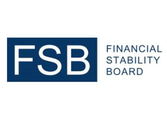
The FSB has been established to coordinate at the international level the work of national financial authorities and international standard setting bodies and to develop and promote the implementation of effective regulatory, supervisory and other financial sector policies in the interest of financial stability. more
